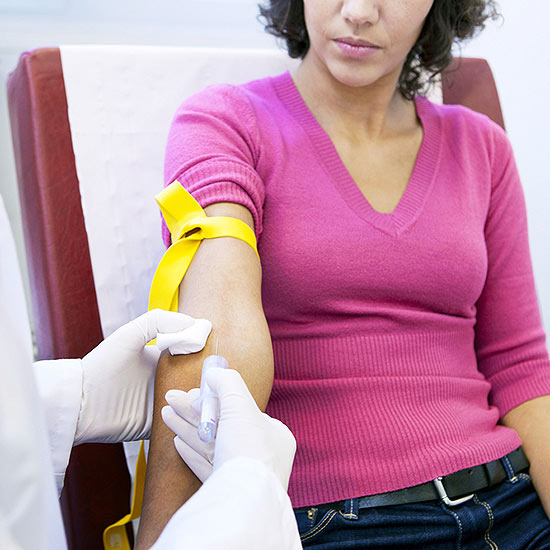
When it comes to choosing between a urine test—the kind of at-home pregnancy test you can easily find at your local drugstore—and a pregnancy blood test, the biggest difference is sensitivity. Although a home pregnancy test can usually pick up a concentration of about 50 units of hCG (the pregnancy hormone human chorionic gonadotropin), a pregnancy blood test can detect as little as 5 units of hCG, explains Daniel Roshan, M.D., ob-gyn at Rosh Maternal-Fetal Medicine in New York City.
Early reading
That sensitivity can make a big difference if you want or need to know whether or not you're pregnant very early, Dr. Roshan says. "If you do a pregnancy test before you miss your period, the result may be negative with a urine test but positive with a blood test."
When you're at risk
Early pregnancy tests aren't usually necessary, but they can make a difference for women at higher risk for miscarriage or ectopic pregnancy. Ectopic pregnancy, also known as tubal pregnancy, occurs when the fertilized egg remains in the fallopian tubes, instead of in the uterus, where it should be. "A patient would go to the doctor right away if they had a previous miscarriage so the doctor can check their blood and [she] can have a sonogram to look inside and see that everything is okay and it's a healthy pregnancy," says Dr. Roshan.
Peace of mind
For most women, a pregnancy blood test isn't necessary. If you've taken a home pregnancy test and gotten a positive result, your ob-gyn will likely see you around eight weeks after your last menstrual period and confirm your pregnancy with a transvaginal ultrasound. Sometimes, however, a doctor can't detect the pregnancy on an ultrasound right away, and in that case she may order a blood pregnancy test, says Cristina Perez, M.D., an ob-gyn at the Women's Specialists of Houston at Texas Children's Pavilion for Women.
The blood test will consist of at least two blood draws, about 48 hours apart. Early in pregnancy, your hCG levels should double approximately every 48 hours. By seeing the change in hCG levels, the doctor can evaluate for a miscarriage or ectopic pregnancy, or confirm that your pregnancy is progressing healthily.




